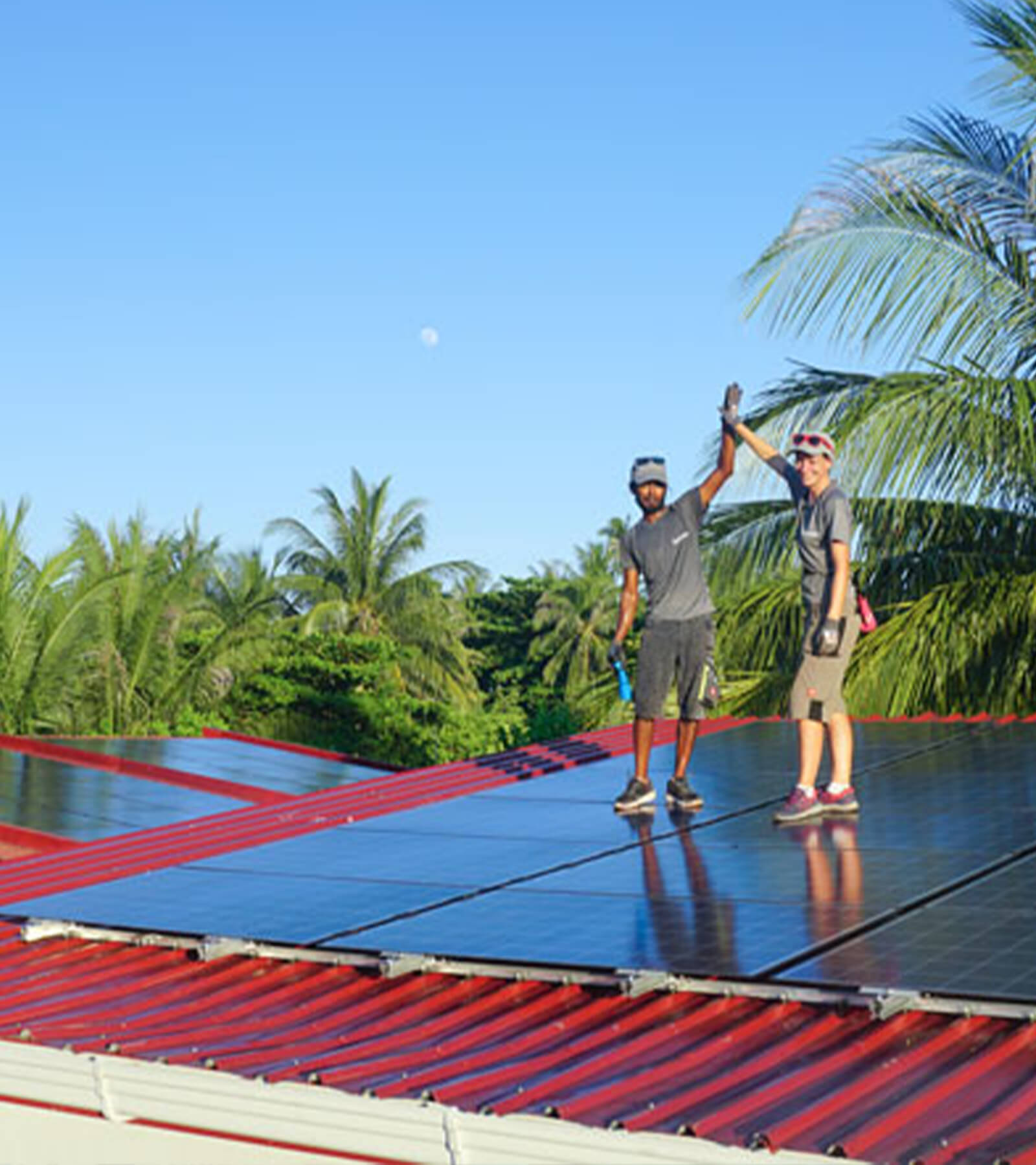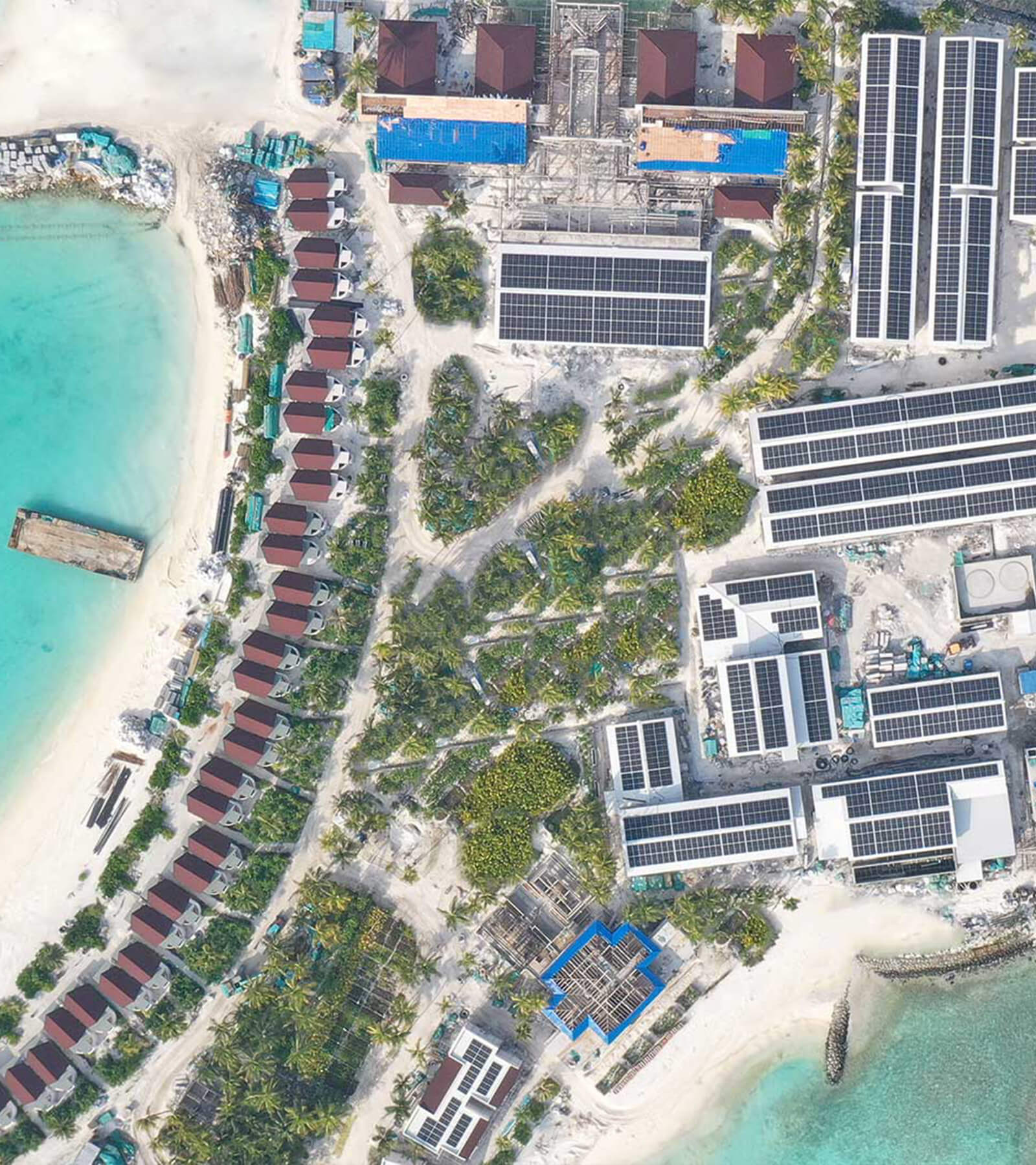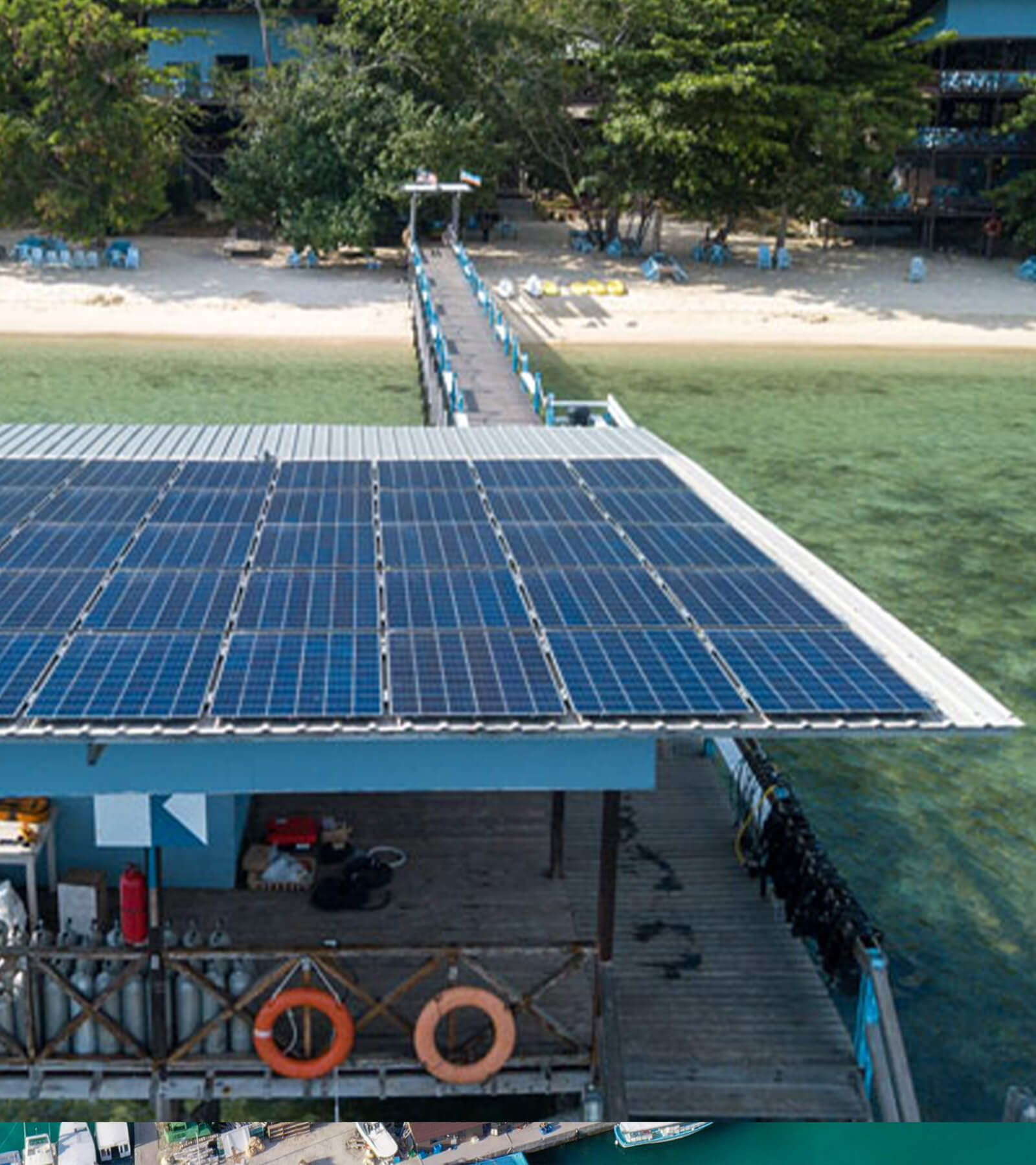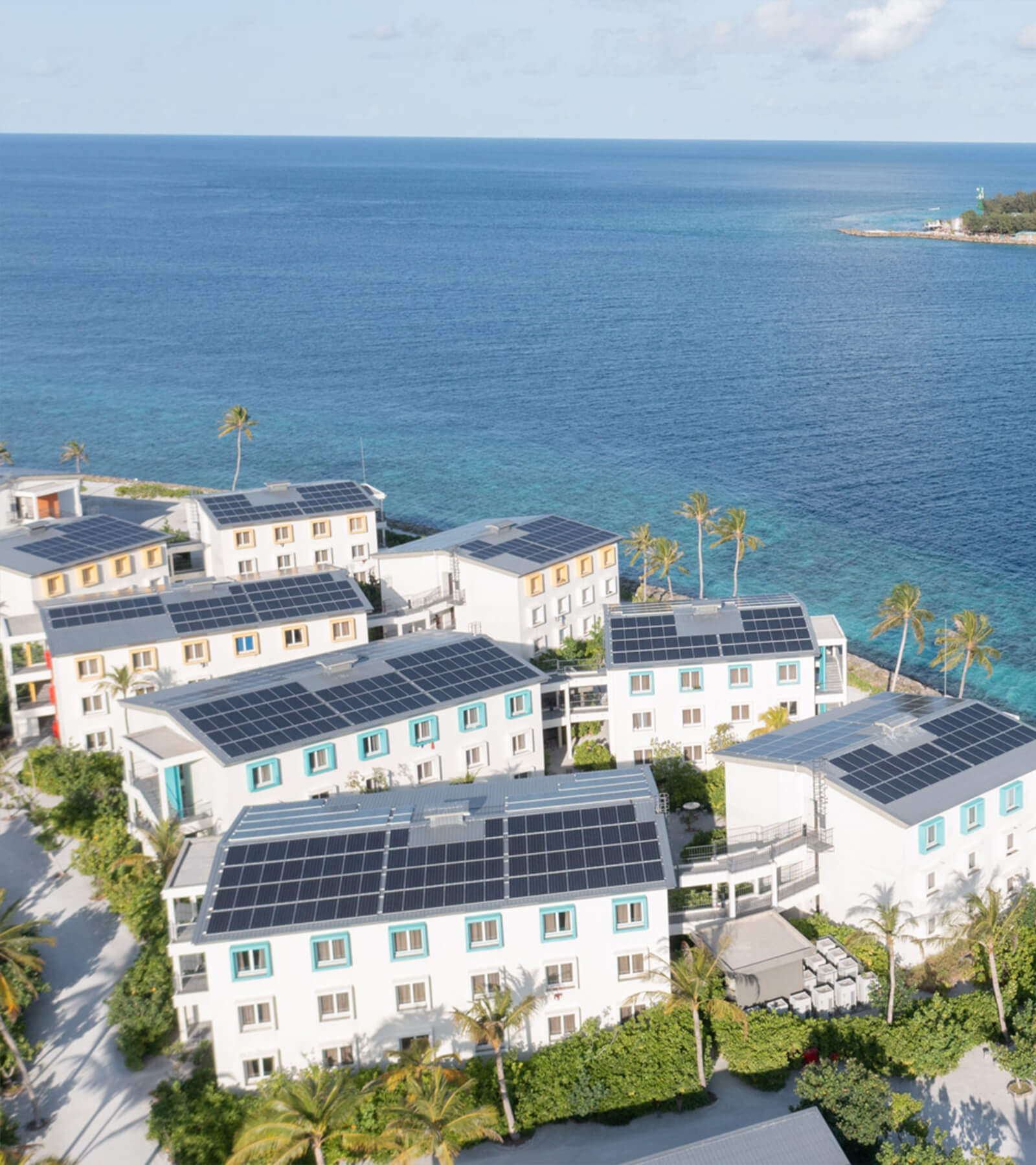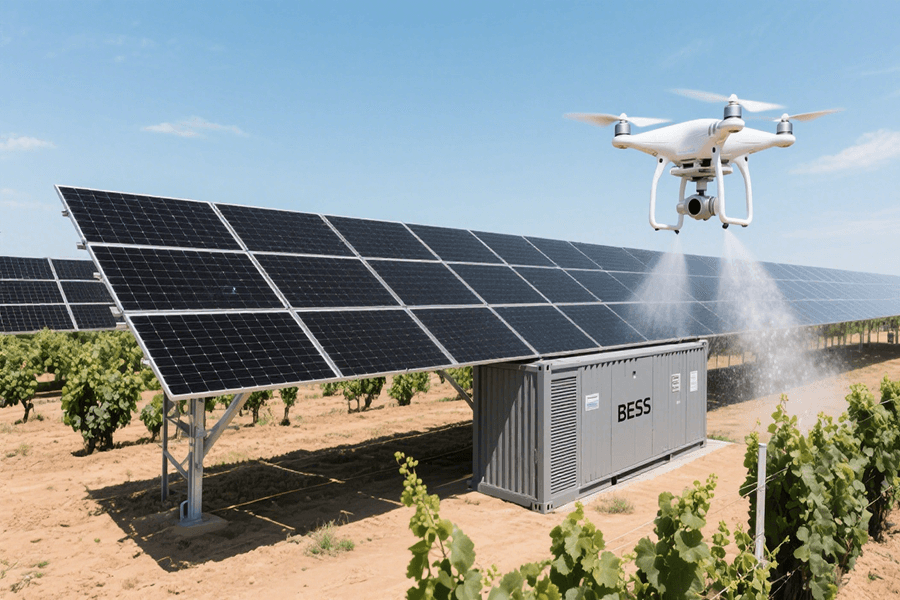
The EU’s Precision Ag Push & BESS’s Star Role
2025 has emerged as a landmark year for European Union (EU) agriculture, driven by the ambitious EU Precision Agriculture Strategy. This €300 million initiative aims to revolutionize farm management through the widespread adoption of drones, marking a significant step towards sustainable and data – driven farming practices.
Drones have quickly become indispensable assets in vineyards across the EU, earning the moniker “the vineyard’s new best friends.” These aerial marvels are equipped with advanced sensors and imaging technologies that enable them to perform a multitude of tasks with unparalleled precision. For instance, they can:
- Map soil health: By analyzing soil composition and nutrient levels, drones provide farmers with detailed maps that help them identify areas requiring specific treatments, optimizing fertilization and reducing waste.
- Spot pest infestations: High – resolution cameras mounted on drones can detect early signs of pest and disease outbreaks, allowing for targeted interventions and minimizing the use of pesticides.
- Deliver targeted irrigation: Using real – time data on soil moisture levels, drones can precisely distribute water only where and when it’s needed, conserving water resources and improving crop yields.
However, the transition to solar – powered drones in vineyards, which is a key component of the EU’s sustainable agriculture goals, comes with its own set of challenges. Many vineyards are located in remote, rural areas where grid connections are unreliable or non – existent. Solar – powered drones, while environmentally friendly, rely on consistent sunlight to generate the energy they need to operate. This means that during periods of low sunlight, such as cloudy days or at night, there’s a risk of energy shortages that could disrupt critical operations like irrigation.
This is where BESS Containers (Battery Energy Storage Systems) come into play. Often overlooked but essential, BESS Containers act as the linchpin between solar energy supply and the energy demands of drones and irrigation systems. They can be thought of as “portable power banks for vineyards,” offering a reliable and flexible energy storage solution. Here’s how they work:
- Daytime energy storage: During the day, when sunlight is abundant, BESS Containers capture and store excess solar energy generated by on – site solar panels.
- Overnight drone charging: At night, when solar energy is no longer available, the stored energy in the BESS Containers is used to charge drones, ensuring they’re ready for the next day’s operations.
- Backup power: Even on cloudy days or during periods of extended low sunlight, BESS Containers can keep irrigation systems running, preventing crop stress and ensuring healthy vine growth.
In essence, BESS Containers are the key to unlocking the full potential of solar – powered drones in EU vineyards. Without them, the EU’s ambitious drone – enabled irrigation goals would be severely hampered, much like a wine without yeast—it simply wouldn’t reach its full potential.
Source: EU Commission’s 2025 Precision Agriculture Strategy, [https://ec.europa.eu/info/funding* – opportunities/funding – programmes/horizon – europe/precision – agriculture_en](https://ec.europa.eu/info/funding – opportunities/funding – programmes/horizon – europe/precision – agriculture_en)*
Compact BESS Designs: Powering Drones & Cutting Costs
Vineyards aren’t warehouses—they demand Battery Energy Storage System (BESS) solutions that seamlessly integrate without disrupting the meticulously arranged rows of grapevines. The ideal solution lies in 10–30 kWh compact containers strategically positioned along vineyard edges. When paired with 5–12 kW solar panels, these systems transform sunlight into the fuel that powers irrigation drones, while simultaneously driving significant cost savings.
Drone Fleet Power: Numbers That Matter
A single 20 kWh BESS, when coupled with 8 kW solar panels, has the capacity to charge 8–12 irrigation drones daily. This charging capability is sufficient to cover an area of 50–75 acres of vineyards, ensuring efficient irrigation across vast stretches of land. However, the true advantage lies in the substantial cost savings realized by vineyard owners. By shifting away from grid – only charging methods, vineyard operators can reduce their energy bills by 40% annually.
To illustrate the economic benefits more clearly, consider the following comparative analysis of different charging scenarios:
| Charging Scenario | Daily Energy Use | Daily Cost (EU Average) | Annual Savings (365 Days) |
|---|---|---|---|
| Grid – Only Charging (8 Drones) | 25 kWh | €5.25 (€0.21/kWh) | €0 |
| BESS + Solar Charging (8 Drones) | 25 kWh (100% solar) | €1.05 (minimal grid backup) | €1,533 |
Source: European Renewable Energy Council (EREC) 2025 Solar – Storage Cost Report, [https://www.erec.org/solar* – storage – cost – analysis – 2025](https://www.erec.org/solar – storage – cost – analysis – 2025)*
Syncing with Soil Moisture Sensors: Precision, Not Waste
BESS Containers transcend the traditional concept of mere “power boxes”; they function as sophisticated “smart controllers.” These systems establish real – time synchronization with advanced soil moisture sensors, such as the Decagon Devices GS3. This integration enables them to precisely instruct drones on when and how much water to apply during irrigation operations.
For instance, in a practical application within a 100 – acre Chardonnay vineyard in Bordeaux, France, this innovative setup demonstrated remarkable efficiency. Compared to traditional sprinkler irrigation methods, it achieved a 22% reduction in water usage. The soil moisture sensors continuously send data to the BESS, which then dynamically adjusts the drones’ flight paths. This intelligent adjustment mechanism ensures that water is only applied where and when it is truly needed, eliminating the issues of over – watering dry soil or inundating plant roots.
Source: French Agricultural Research Institute (INRAE) 2024 Vineyard Irrigation Study, [https://www.inrae.fr/research* – projects/vineyard – precision – irrigation](https://www.inrae.fr/research – projects/vineyard – precision – irrigation)*
Weather – Ready BESS: Built for EU’s Wild Climates
EU vineyards present a dichotomy of environmental challenges, spanning the sun – scorched Mediterranean valleys of Spain and Italy, and the frost – prone Northern plains of Germany and Belgium. Given this diversity, a standardized Battery Energy Storage System (BESS) is ill – suited to meet the varied demands. Instead, manufacturers adopt a location – specific design approach, tailoring BESS Containers to the unique climatic and regulatory requirements of each region.
Mediterranean – Grade: UV & Heat Resistance
In the sun – baked regions where summer temperatures frequently soar to 35°C (95°F), BESS Containers must incorporate specialized features to withstand harsh conditions and ensure optimal battery performance:
- UV – resistant fiberglass enclosures: These enclosures are engineered to shield batteries from the intense ultraviolet radiation prevalent in the Mediterranean. By preventing plastic cracking and degradation, they safeguard the integrity of the battery system, extending its lifespan.
- Dual – fan cooling systems: To maintain batteries within the optimal temperature range of 25–30°C, crucial for maximizing longevity and efficiency, dual – fan cooling systems are integrated. These systems actively dissipate heat, preventing overheating and ensuring consistent performance even in extreme heat.
Real – world efficacy: A 30 kWh BESS deployed in a vineyard in Tuscany, Italy, demonstrated remarkable resilience during the 2024 heatwave. While unprotected units experienced a significant drop in efficiency to 82%, this specialized BESS Container maintained an impressive 98% efficiency, highlighting the importance of location – appropriate design.
Northern EU – Grade: Frost & Moisture Protection
In the colder climates of Northern Europe, where winter frosts can plunge temperatures to -5°C (23°F), BESS Containers require distinct protective measures:
- Insulated steel shells: These robust shells provide thermal insulation, preventing battery freezing and maintaining operational functionality in sub – zero temperatures.
- Dehumidifiers: To combat the threat of condensation, which can lead to short circuits and system failures, dehumidifiers are installed. These devices actively remove moisture from the air, ensuring a dry and stable environment for the batteries.
Operational success: A 15 kWh BESS deployed in Rhineland – Palatinate, Germany, successfully navigated the 2024 frost season without any downtime for drone charging. This achievement underscores the effectiveness of frost and moisture protection features in enabling continuous operation in challenging climates.
EU Organic Data Compliance: Track, Report, Succeed
With organic vineyards accounting for 40% of the EU’s vineyard acreage, stringent data – tracking requirements are in place to maintain organic certification. BESS Containers play a pivotal role in meeting these requirements by:
- Comprehensive data logging: The containers are equipped with advanced sensors that record detailed drone irrigation data, including water volume, timing, and post – irrigation soil moisture levels.
- Regulatory – compliant reporting: Leveraging the logged data, BESS Containers generate reports that adhere to the EU Organic Farming Regulation (EC 834/2007) standards. These reports provide vineyard managers with valuable insights into irrigation efficiency and enable them to make data – driven decisions.
Impact on yield: An organic Pinot Noir vineyard in Lombardy, Italy, exemplifies the benefits of data – driven irrigation. By utilizing the data collected by BESS Containers, the vineyard was able to optimize its irrigation schedules, resulting in a 15% increase in yield over three years. This success story highlights the critical role of BESS Containers in supporting sustainable and efficient organic farming practices.
Source: Italian Organic Farming Association (AIAB) 2025 Compliance Guide, [https://www.aiab.it/en/organic* – standards – 2025](https://www.aiab.it/en/organic – standards – 2025)*
Conclusion: Sizing, Grants, & Maxbo Solar’s Solution
BESS Sizing Guide: Tailored to Your Vineyard’s Needs
The size of your Battery Energy Storage System (BESS) is a critical factor in the efficiency and cost – effectiveness of your vineyard’s drone – based irrigation operations. A BESS that is too small will leave your drones grounded prematurely, disrupting irrigation schedules and potentially harming your crops. Conversely, an oversized BESS represents a significant, unnecessary financial investment. To help you make an informed decision, here is the 2025 industry – recommended sizing guide:
| Vineyard Acreage | Recommended BESS Capacity | Solar Panel Pairing | Daily Drone Coverage | Considerations |
|---|---|---|---|---|
| 25–50 Acres | 10–15 kWh | 5–7 kW | 4–6 Drones | Ideal for small – scale vineyards with moderate irrigation needs. |
| 50–100 Acres | 20–25 kWh | 8–10 kW | 8–10 Drones | Suitable for medium – sized vineyards requiring more extensive coverage. |
| 100+ Acres | 30 kWh+ | 12 kW+ | 12+ Drones | Recommended for large – scale operations with high – volume irrigation demands. |
It’s important to note that these are general guidelines. For a more accurate assessment, factors such as the type of crops, local climate conditions, and specific irrigation requirements should also be taken into account.
EU Grants: Substantial Financial Support for Solar – BESS Adoption
The European Agricultural Fund for Rural Development (EAFRD) offers an excellent opportunity for vineyard owners to offset the costs associated with implementing Solar – BESS systems. The fund provides grants that can cover 30–50% of the combined costs of BESS and solar installations for vineyards.
Eligibility Criteria
To qualify for these grants, your vineyard must meet the following conditions:
- Drone – Based Irrigation: Your vineyard must utilize drones for irrigation purposes, demonstrating a commitment to modern, precision agriculture techniques.
- Compliance with EU Standards: The BESS installed must adhere to EU energy efficiency standards, specifically EN 50530. This ensures that the system is environmentally friendly and operates at optimal efficiency.
- Submission of Efficiency Plan: You are required to submit a comprehensive 1 – year efficiency plan. This plan should detail how the BESS and solar system will enhance the energy efficiency of your vineyard operations. Data from the BESS can be invaluable in creating a robust and persuasive plan.
For more information and to access the grant application, visit the EAFRD 2025 Precision Ag Grant Portal:
- [https://ec.europa.eu/agriculture/funding – support/eafrd_en](https://ec.europa.eu/agriculture/funding – support/eafrd_en)
Maxbo Solar: Your Trusted Partner in EU Vineyard BESS Solutions
At Maxbo Solar (www.maxbo – solar.com), we are dedicated to providing more than just BESS Containers; we offer customized solutions designed to meet the unique needs of your vineyard. Here’s what makes us the preferred choice for vineyard owners across the EU:
- Climate – Adaptive Designs: Our BESS systems, ranging from 10–30 kWh, are meticulously tailored to suit the specific climate conditions of your region, whether it’s the sun – drenched Mediterranean or the cooler climates of Northern EU. Each system is equipped with advanced UV and frost protection features to ensure durability and optimal performance throughout the year.
- Seamless Integration: Our BESS is engineered for effortless compatibility with all major drone brands, including DJI Agras and Yamaha RMAX, as well as soil sensors. This plug – & – play functionality eliminates the need for complex, additional wiring setups, saving you time and installation costs.
- Grant Application Support: Navigating the grant application process can be daunting. That’s where we come in. Our team of experts provides comprehensive support in filling out EAFRD grant applications. With our assistance, our clients enjoy an impressive 78% approval rate, significantly increasing your chances of securing valuable funding.
- Exceptional Warranty and Support: We stand behind the quality of our products with a 5 – year battery warranty. Additionally, our 24/7 EU – based support ensures that help is always at hand. With service centers strategically located in Madrid, Paris, and Munich, we can promptly address any issues and keep your vineyard operations running smoothly.
Our track record speaks for itself. In the past year alone, we have successfully installed 120 BESS Containers across vineyards throughout the EU, from the renowned wine regions of Rioja, Spain, to the prestigious Champagne area in France. One of our clients, a 75 – acre Sangiovese vineyard in Tuscany, witnessed remarkable results: a reduction in energy costs by €1,800 per year and a substantial 12% increase in yield. At Maxbo Solar, we’re not just powering drones; we’re powering the future of sustainable, high – yield vineyard operations.
Ready to take the next step? Visit www.maxbo – solar.com today to request a free, no – obligation BESS sizing quote customized for your vineyard.

